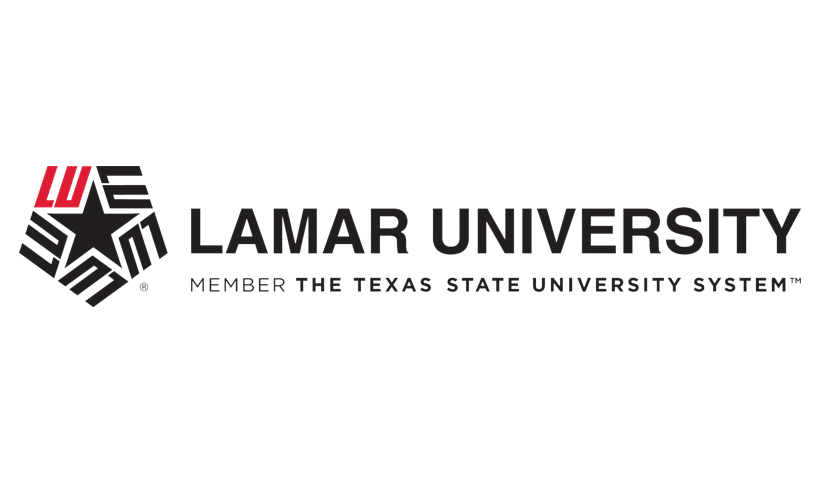 Walden University : MS in School Counseling (CACREP Accredited)
Walden University : MS in School Counseling (CACREP Accredited) Walden University : MS Dual Degree in Clinical Mental Health Counseling and School Counseling (CACREP Accredited, six specializations to choose from)
Walden University : MS Dual Degree in Clinical Mental Health Counseling and School Counseling (CACREP Accredited, six specializations to choose from) Walden University : PhD in Counselor Education and Supervision, School Counseling (HLC Accredited)
Walden University : PhD in Counselor Education and Supervision, School Counseling (HLC Accredited) Grand Canyon University : Master of Education in School Counseling (CACREP Accredited)
Grand Canyon University : Master of Education in School Counseling (CACREP Accredited) Liberty University : MED: School Counseling (Online with required intensives)
Liberty University : MED: School Counseling (Online with required intensives) University of Denver : Master of Arts in School Counseling (CACREP Accredited)
University of Denver : Master of Arts in School Counseling (CACREP Accredited) The Chicago School : Ph.D. in Counselor Education and Supervision (Online Programs.)
The Chicago School : Ph.D. in Counselor Education and Supervision (Online Programs.) Colorado Christian University : School Counseling, M.A. (100% online, or hybrid format. )
Colorado Christian University : School Counseling, M.A. (100% online, or hybrid format. ) Sacred Heart University : Master of Arts in School Counseling (Online program, NECHE accredited)
Sacred Heart University : Master of Arts in School Counseling (Online program, NECHE accredited)Understanding the Path to a School Counseling Career
As mental health awareness grows and student support needs increase, schools across the country are investing in qualified professionals to help students thrive. This shift has sparked growing interest in school counseling careers—especially among undergraduate psychology majors who want to make a difference in K–12 education.
If you’re asking, can I be a school counselor with a bachelor’s degree in psychology?—you’re not alone. It’s a common question among psychology undergrads who are drawn to helping roles in school settings.
The short answer is this: while a bachelor’s in psychology is an excellent foundation, becoming a licensed school counselor typically requires a master’s degree in school counseling or a related field, along with state certification.
In the sections ahead, we’ll walk you through why your psychology degree is a strong starting point, what the full requirements are to become a school counselor, and what alternative roles might be available to you while you’re working toward your goals.
Consider a Featured Online Counseling Program
| School and Program Information | Online Program? Entry Requirements | Course Information | |
|---|---|---|---|
|
Walden University
MS in School Counseling
 CACREP Accredited CACREP Accredited |
✔ Online
GRE scores not required
|
CACREP-accredited program provides a solid foundation in school counseling theories, approaches, and best practices while enabling you to gain hands-on experience.
|
Learn More |
|
Walden University
MS Dual Degree in Clinical Mental Health Counseling and School Counseling
 CACREP Accredited CACREP Accredited |
✔ Online
GRE scores not required
|
Gain insights and hands-on training to positively impact the lives of children, adults, and families with Walden's CACREP-accredited dual degree program.
|
Learn More |
|
Walden University
PhD in Counselor Education and Supervision, School Counseling
HLC Accredited
|
✔ Online
|
In the PhD in Counselor Education and Supervision with a specialization in School Counseling, you’ll build your theoretical and practical understanding of the systemic interplay among children, adolescents, families, and the stakeholders in their lives. Coursework in this program focuses on a family-systems view of intervention, with specific attention to developmental, cognitive, behavioral, educational, multicultural, and environmental issues. You’ll also examine group theory, process, and dynamics and how to apply these concepts to group counseling and guidance in school settings.
|
Learn More |
|
Grand Canyon University
Master of Education in School Counseling
 CACREP Accredited CACREP Accredited |
✔ Online
|
At GCU, school-counselors-in-training candidates develop into more than school counselors, they grow into compassionate, servant leaders with strong ethics and morals to positively make a greater difference in communities and the lives of children.
|
Learn More |
|
Liberty University
MED: School Counseling
 CACREP Accredited CACREP Accredited |
✔ Online
Online with required intensives
|
Liberty University’s CACREP-accredited Master of Education (M.Ed.) in School Counseling can help equip you to work as a school counselor in Christian, public, and private schools. Online and on campus. Training Champions for Christ since 1971.
|
Learn More |
|
University of Denver
Master of Arts in School Counseling
 CACREP Accredited CACREP Accredited |
✔ Online
No GRE Required; Minimum GPA 2.5 Required
|
With no GRE required, earn your CACREP-accredited Master's in School Counseling online in as few as 24 months from the University of Denver.
|
Learn More |
|
The Chicago School
Ph.D. in Counselor Education and Supervision
|
✔ Online
Master's Degree Required.
|
Prepares graduates to act as educators and leaders in the field of counseling.
|
Learn More |
|
Colorado Christian University
School Counseling, M.A.
HLC Accredited
|
✔ Online
Bachelor's Degree
|
Complete in as little as 30 months of consecutive coursework. Required 5-day, on-campus residency each summer of the program. CACREP is in process.
|
Learn More |
|
Sacred Heart University
Master of Arts in School Counseling
NECHE accredited
|
✔ Online
GRE/GMAT not required
|
The online Master of Arts in School Counseling degree from Sacred Heart University delivers the expertise you need to become an ethical and data-driven school counselor. With training from expert educators and a curriculum founded on the latest research and current best practices, you'll discover what it takes to support PK–12 students through academic development, college and career readiness and social-emotional learning. Next Start is Summer 2023.
|
Learn More |
*Sponsored Counseling Programs
For detailed degree information, view the guides to:
Online CACREP Accredited programs | Online MPCAC Accredited programs
 Walden University - MS in School Counseling (CACREP Accredited)
Walden University - MS in School Counseling (CACREP Accredited)
 Grand Canyon University - Master of Education in School Counseling (CACREP Accredited)
Grand Canyon University - Master of Education in School Counseling (CACREP Accredited)
 Liberty University - MED: School Counseling (CACREP and NCATE through CAEP Accredited)
Liberty University - MED: School Counseling (CACREP and NCATE through CAEP Accredited)
 University of Denver - Master of Arts in School Counseling (CACREP Accredited)
University of Denver - Master of Arts in School Counseling (CACREP Accredited)
 The Chicago School - Ph.D. in Counselor Education and Supervision (WASC and WSCUC Accredited)
The Chicago School - Ph.D. in Counselor Education and Supervision (WASC and WSCUC Accredited)
 Colorado Christian University - School Counseling, M.A. (HLC Accredited)
Colorado Christian University - School Counseling, M.A. (HLC Accredited)
 Sacred Heart University - Master of Arts in School Counseling (NECHE Accredited)
Sacred Heart University - Master of Arts in School Counseling (NECHE Accredited)
What Are the Requirements to Become a School Counselor?
Although a bachelor’s in psychology provides a strong academic foundation, becoming a school counselor typically requires additional education, licensure, and supervised experience. Understanding these requirements is essential for planning your next steps.
A Master’s Degree in School Counseling or a Related Field
Nearly all states require school counselors to hold a master’s degree in school counseling, counseling, or a closely related field. These programs typically include coursework in counseling theory, academic advising, multicultural issues, ethics, and career development. Most also incorporate supervised field experiences in K–12 settings to help students build real-world skills.
State Licensure or Certification
To practice as a school counselor in a public school, you must be licensed or certified by your state’s education department or licensing board. This often involves completing a state-approved master’s program and passing a certification exam, such as the Praxis School Counselor exam or a state-specific equivalent. While not required for state licensure, some professionals also pursue optional national credentials like the National Certified School Counselor (NCSC) certification to demonstrate advanced competency and strengthen their qualifications—especially when applying to positions across state lines or in competitive districts.
Supervised Practicum or Internship
Graduate programs include a practicum and internship component, which allows future school counselors to gain hands-on experience under supervision. These placements typically occur in elementary, middle, or high schools and are critical for both professional development and licensure eligibility.
Additional State-Specific Requirements
Some states may require school counselors to have prior teaching experience or hold a teaching credential before obtaining a school counseling license. Others may waive this requirement if the graduate program includes adequate training in educational environments.
Pathways: From Bachelor’s in Psychology to School Counselor
Transitioning from a traditional or online bachelor’s degree in psychology to a career as a school counselor involves several intentional steps. Each stage builds upon your undergraduate foundation and brings you closer to meeting licensure and employment requirements. Here’s a breakdown of how to make that transition successfully.
1. Apply to a CACREP-Accredited Master’s Program
The Council for Accreditation of Counseling and Related Educational Programs (CACREP) sets the standard for high-quality counseling education. While not always required, graduating from a CACREP-accredited program can streamline the licensure process and ensure your education meets national expectations.
In a CACREP-accredited school counseling program, you’ll study topics like human development, counseling techniques, academic advising, and crisis intervention. You’ll also complete a practicum and internship in K–12 school settings under the supervision of a licensed school counselor.
2. Gain Relevant Experience
Before applying to graduate school—or while enrolled—you can strengthen your résumé and skills by working in settings that serve youth and families. Options include:
- Paraprofessional roles in schools
- Youth mentorship or after-school programs
- Behavioral health technician positions
- Volunteering with nonprofits focused on education or mental health
These experiences not only help you confirm your interest in school counseling but also make your graduate applications more competitive.
3. Meet State Licensing Requirements
After completing your master’s degree, you’ll need to fulfill your state’s licensure requirements. These often include:
- Passing a school counselor-specific exam (such as the Praxis or a state-developed test)
- Submitting documentation of supervised internship hours
- Completing a background check and application with your state’s education department
Because licensure requirements vary by state, it’s important to research the regulations in the state where you plan to work and align your graduate program accordingly.
While your psychology degree alone doesn’t qualify you to become a school counselor, following these pathways can help turn that foundation into a meaningful, licensed career in school-based mental health and student support.
Are There Any Exceptions or Alternative Roles?
Although becoming a licensed school counselor requires a master’s degree in most states, there are a few exceptions and related roles that may be available to individuals with only a bachelor’s degree—especially those with a background in psychology. These roles can offer valuable experience and serve as stepping stones toward a full counseling career.
Paraprofessional and Support Positions in Schools
Many school districts hire professionals for support roles that do not require a graduate degree. These may include:
- Behavioral aides or instructional aides, who support students with behavioral or academic needs
- Student support specialists, who assist with attendance, social-emotional programming, and peer conflict resolution
- School counseling assistants, which exist in some districts and typically support licensed counselors with administrative tasks and student outreach
While these positions don’t carry the responsibilities or title of a school counselor, they allow you to work directly with students and gain experience in a school setting. If you’re interested primarily in serving in academic settings, you might also consider becoming a school counselor vs. a school psychologist.
Academic Advising and Career Coaching
Colleges, community organizations, and workforce development programs often hire academic or career advisors who hold a bachelor’s degree—particularly in psychology, education, or human services. These professionals help students explore academic paths, develop career plans, and access resources.
Although not the same as school counseling, these roles still involve one-on-one support and guidance, and they may help confirm your interest in pursuing a counseling graduate program later on.
Temporary or Emergency Licensure Pathways
In response to counselor shortages, some states and districts offer temporary or emergency licenses that allow individuals with a bachelor’s degree (and enrollment in a qualifying master’s program) to begin working under supervision. These pathways are usually limited in scope and duration, but they can provide early access to school-based work while completing your graduate degree.
These alternatives won’t replace the master’s degree required for full licensure, but they can offer hands-on experience, a paycheck, and a chance to build relationships in school communities while you work toward your long-term goal.
Frequently Asked Questions
Can I start working in schools before finishing my master’s?
Yes, in many cases. While you can’t work as a licensed school counselor without a completed master’s degree and certification, you can work in related roles—such as behavioral aide, student support specialist, or paraprofessional—while in school. Some school districts even hire graduate students in internship or assistant positions that align with their degree program.
Do online master’s programs qualify for licensure?
Yes, many online master’s in school counseling programs meet licensure requirements, as long as they are accredited (preferably by CACREP) and include in-person practicum and internship components. Be sure to verify that the program is approved in your state or provides clear guidance for meeting state-specific licensure requirements.
How long does it take to go from bachelor’s to full licensure?
The typical timeline is 6 to 8 years total, including:
- 4 years for a bachelor’s degree (e.g., in psychology)
- 2 to 3 years for a master’s program in school counseling
- Additional time for completing state exams and licensure processing
In some cases, graduate students may begin fieldwork or provisional employment during their master’s program, which can help shorten the time to full employment post-licensure.
What if my psychology degree is not from the U.S.?
If your undergraduate degree was earned outside the United States, you’ll typically need to have your academic credentials evaluated by a recognized credential evaluation service. Most graduate programs and state licensing boards require confirmation that your degree is equivalent to a U.S. bachelor’s in psychology. Be sure to check both the admissions criteria for master’s programs and the licensure requirements in your intended state of practice.
Next Steps: From Bachelor’s to School Counseling Career
If you’re ready to move from wondering can I be a school counselor with a bachelor’s degree in psychology? to actively pursuing that goal, there are clear and manageable steps you can take to move forward. With thoughtful planning and the right resources, your psychology degree can become the launchpad for a rewarding career in school counseling.
Research Accredited Master’s Programs
Start by identifying CACREP-accredited or state-approved graduate programs in school counseling. Consider your preferences for online, in-person, or hybrid formats, and compare program features such as internship support, licensure exam preparation, and opportunities for specialization.
Check Licensure Requirements in Your State
Each state has its own standards for school counselor certification. Visit your state’s department of education or licensing board website to review:
- Required degree types
- Exams (such as the Praxis or state-specific tests)
- Supervised experience hours
- Background check and application processes
Gain Field Experience
Look for ways to work with students or youth in your community. Jobs or volunteer roles in schools, youth mentoring programs, or mental health settings can help you:
- Strengthen your grad school applications
- Clarify your professional interests
- Build a network of references and mentors
Explore Financial Aid and Support Options
Graduate school can be expensive, but many students qualify for federal financial aid, scholarships, assistantships, or tuition reimbursement through their employer or district. Reach out to program advisors and financial aid offices to learn more about your options.
Taking these steps now can put you on the path to a fulfilling role in school counseling—where your background in psychology, your commitment to helping others, and your growing expertise will all come together to support students’ academic and personal success.









